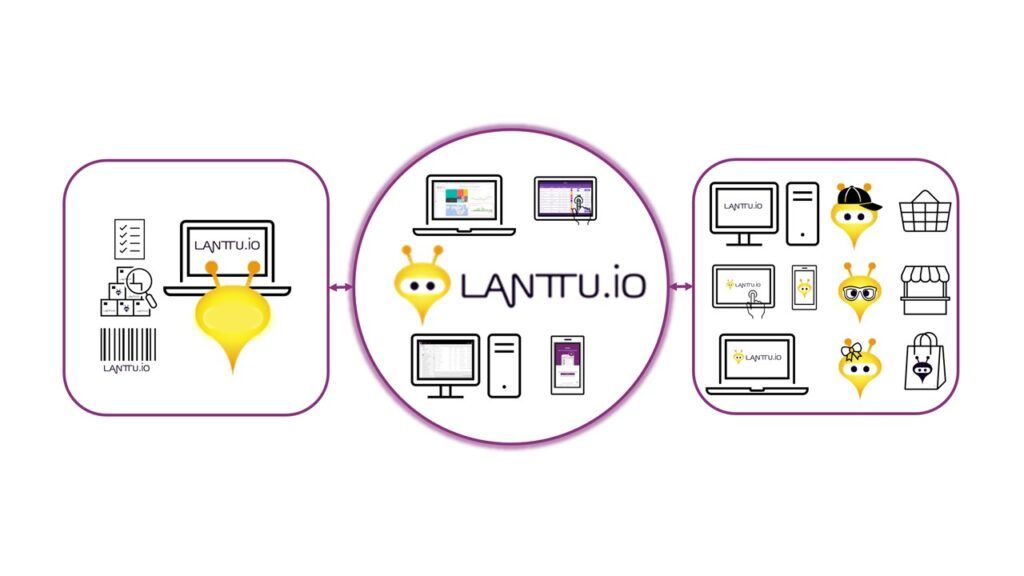
What is supplier product information management in retail?
Supplier product information management is the retail process in which industry players collect, maintain, and share information about their products with their suppliers. It involves data flows that move from suppliers to customers along with the flow of goods. This information may include product features, sizes, prices, weights, descriptions, and other necessary details. Well-designed and executed supplier product information management ensures that product information is up-to-date and consistent across different systems and sales channels, such as online stores, physical stores, and marketing materials.
Why is supplier and product information management important?
Customer satisfaction: Consumers are more informed and demanding than ever before. They expect to receive accurate information about products before making a purchasing decision. Incorrect or outdated information easily leads to complaints. Reliable and up-to-date product information improves customer satisfaction.
If the quality of product information is poor or if information is updated manually, then the total workload of product information management can be as much as 20 working days per month or more.
Time and resource savings: Manual product information management is time-consuming and prone to errors. In well-planned supplier product information management, data flow workflows, quality control, and maintenance processes are in place, and data transfers are automated or can be scheduled.
If the quality of product information is poor or if information is updated manually, then the total workload of product information management can be as much as 20 working days per month or more, even for a medium-sized retail company. One solution in such cases may also be outsourcing these processes. By investing in supplier product information management, you save time and resources, while reducing errors. You can allocate work time to other business areas, such as customer service.
Speed and upselling: Managing product information involves managing and tracking changes. When you efficiently manage your product information, you can bring new products to market faster than competitors and respond more agilely to market changes and customer needs. This provides a competitive advantage and even increases sales.
Improved supplier collaboration: Well-organized supplier product information management facilitates communication and collaboration between suppliers and retailers. This leads to a more efficient supply chain. Retailers are burdened when information is missing or doesn’t go with the flow of goods. If a change in package size is only discovered upon arrival at the warehouse or if information about a change in EAN code is missing, it needs to be corrected. Similarly, if the product information provided by the manufacturer is poor, the retailer also has to act as the manufacturer’s “marketing machine,” with the help of ChatGPT.
Lanttu.io case study – modern data management and agile application development
Lanttu.io is an innovative service for efficient and reliable supplier and product information management for all parties in the supply chain. It ensures that the information of retail industry players is always reliable, consistent, and up-to-date in all systems. In addition to basic data management, the innovative service built on the Microsoft Power Platform allows for the creation of user-friendly business applications tailored to the company’s individual process needs.
Lanttu.io has significantly saved time for Musti Group, reduced manual work, improved data quality, and streamlined processes.
For example, the implementation of Lanttu.io at Musti Group includes the maintenance of product, supplier, and location information, as well as applications for updating price lists and campaign information. The Lanttu.io service has significantly saved time for Musti Group, reduced manual work, improved data quality, and streamlined processes.
Conclusions
Supplier product information management ensures smooth data flows and accurate, up-to-date product information from suppliers to customers for retail industry players. It improves customer satisfaction, saves time and resources, and can even increase sales. Investing in supplier product information management enables retail companies to gain competitive advantages such as faster response times, more efficient logistics chains, and better partnerships with suppliers. In summary, it is an investment that pays off.
Our latest articles:
- Project management: Qualifying laps or navigating unknown roads? (2/2)
- Project management: Qualifying laps or navigating unknown roads? (1/2)
- Master Data Management system with Power Platform – Implementation (2/2)
- Master Data Management system with Power Platform – Where to start? (1/2)
- Cleaning up messy data
